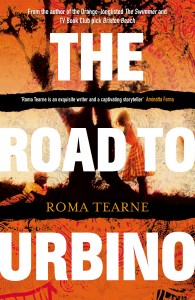 Published by Little, Brown 5 July 2012
Published by Little, Brown 5 July 2012
338pp, trade paperback, £13.99
Reviewed by N.J. Cooper
Roma Tearne opens her fifth novel with what must be a deliberate echo of Daphne du Maurier’s Rebecca: ‘Last night I dreamt I was in Talaimannar again…I saw once again the rutted lane that led, through a thicket of trees, to the old beloved place…’ But Tearne’s narrator is no naïve child bride, confessing her jealousy and fear, and this is no romance. While it takes the form of a criminal’s account to his lawyer of the background to his offence, it is in fact an examination of the long-term damage done by wars of any kind.
The criminal is Ras, a Sri Lankan exile in England, who in a moment of madness committed a serious theft in Tuscany. We get to know him as his lawyer, Elizabeth, works to prepare his defence. We hear of his tragic childhood in Sri Lanka, where his Tamil family were victims of the civil war, and of the first of his failed relationships. This disaster was no fault of his own, but it set the pattern for his life. As a refugee in England, longing to be a painter, resisting all calls to fight for his people, he took a series of more or less menial jobs and married an English woman. The marriage hasn’t lasted, and he has now also lost the trust of his unhappy daughter, Lola. More echoes of other novels creep in with his references to her as ‘Lo-La, Lo-La,’ and later actually ‘Lolita’. Unknown to Ras, she does succumb to an older man. We discover that one of Ras’s jobs was in the National Gallery, where he met the men who introduced him to the glories of Italy and its painters.
For a while one of the men, Alex, takes over the narrative in his own meetings with Elizabeth, the lawyer, casting clearer but less affectionate light on the events and people involved in Ras’s crime. The characters of the two narrators could hardly be more different, and it is a credit to Tearne’s considerable skill that the change in tone is so effective and yet so smooth. She writes with a lyrical freshness that makes her novel seductively easy to read.
None of the lyricism or colour can disguise the horrors she heaps on her characters as she draws parallels between real and emotional wars. But along with the anger, cruelty and terrible grief in The Road to Urbino, she offers not only hints of redemption but also great charm.
